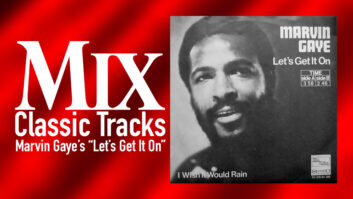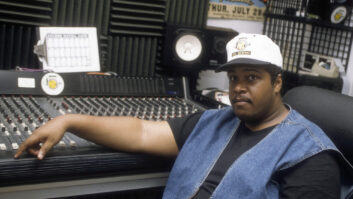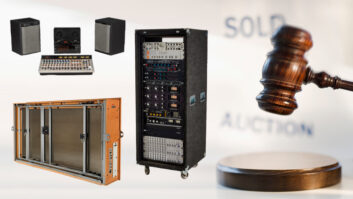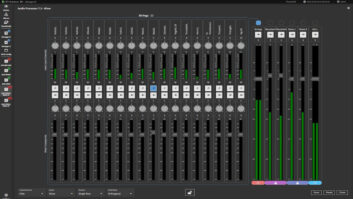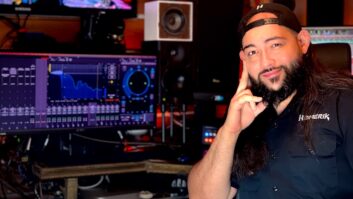Shangri-La is the perfect name for Rick Rubin’s storied studio. Situated in the far reaches of Malibu, it is more of a hideaway than anything else. With its minimalist, frankly bare décor, you can walk through empty room leading into more empty rooms and wonder when or which of these blank canvases might become an actual studio.
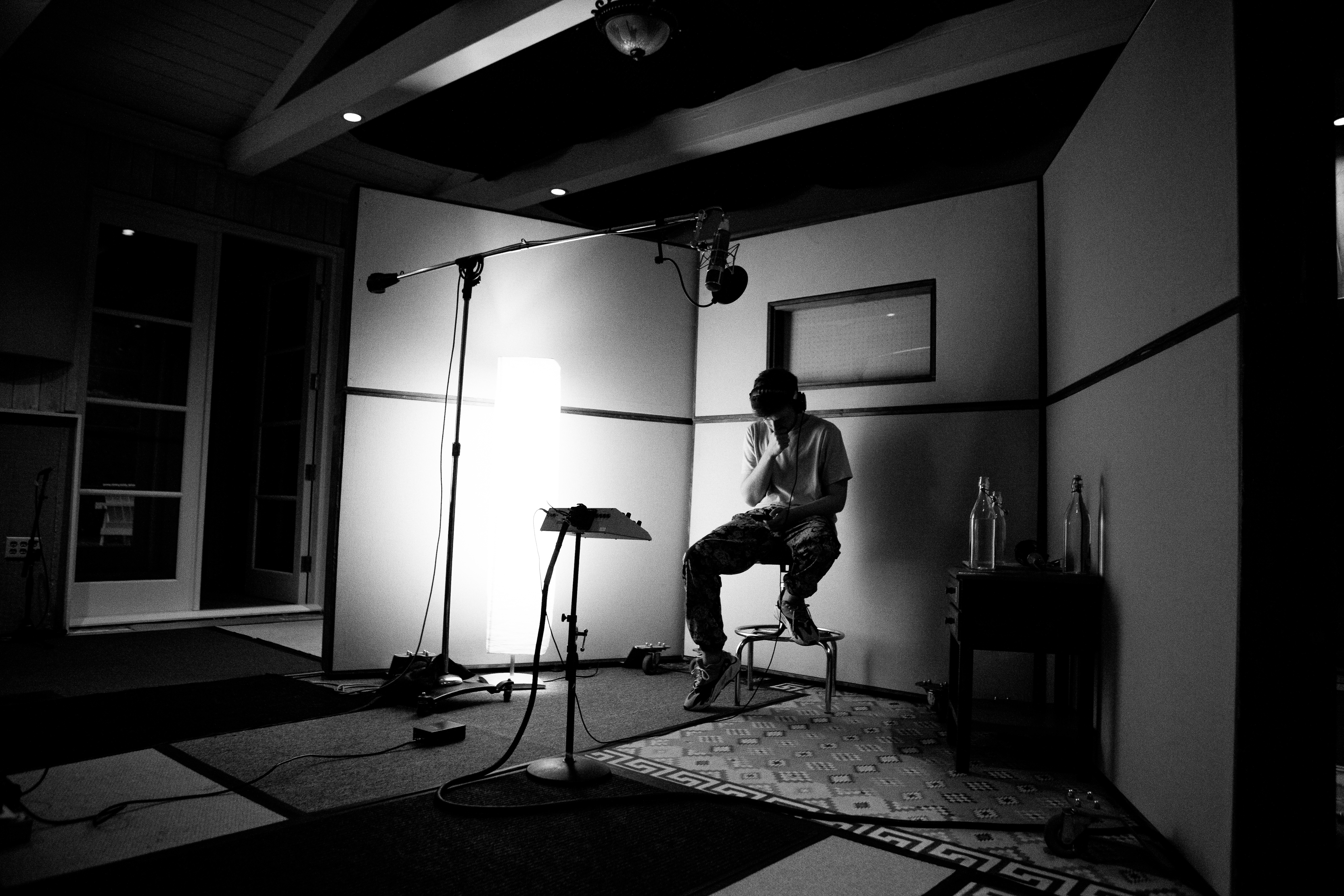
Lido, who is signed to Rubin’s publishing company, American Songs, and is an established musician, songwriter and producer in his own right, comes here to (re)gain perspective. “It’s so quiet,” he says, “It’s a very inspiring place to be.”
The Norwegian-born Lido, who is known as Peder Losnegård to his family, has been staying at Shangri-La for the past week. He is working on his next artist album, the follow-up to his 2016 debut, Everything. The as-yet-untitled project fleshes out the ideas of his most recent EPs, IOU1 and IOU2.
These EPs are only the latest in a string of releases with Lido as the main artist, as well as many records with Lido as vocalist or songwriter or producer. You can hear his work on albums by Chance the Rapper, Halsey, or Jaden Smith, to name just a few. At 26, Lido’s resume reads as though he been working for as many years as he has been alive.
“Everybody that comes to me has one thing in common: they want something different,” says Lido, who can see rabbits gamboling outside the window from his setup in an ocean-view room, one of the few at Shangri-La that has an elaborate studio layout. “Everything I do with artists is always pushing them a little bit in terms of their comfort zone and their usual sound. People come to me when they want to experiment.”
Lido initially received attention for his bootleg remix mash-ups of popular songs, but his strongest suits are chords, harmonies and sound design. He credits his father for these traits, as Losnegård Sr. is an aficionado of gospel and soul music. During Lido’s formative years, his father put together an independent choir and started a gospel festival in Norway.
“I make the music that I make because of my dad,” Lido says. “I wanted to do things that he would like or were cool to him. I would take gospel songs, old soul songs, Steely Dan records, things that he would listen to, mess with them and make them mine. There was a lot of that early on. That’s probably why gospel music is still so incredibly close to my heart, deep down somewhere, because of my dad.”
This background, plus the fact that he plays keys and drums. gives Lido an advantage over other producers. When an artist comes to him wanting to change everything in the song except the topline, instead of switching the drum or bass, Lido will change chords or reharmonize. His focus is on what supports a song by preserving the melody and the best parts of the vocal performance.
“Working with an artist is a lot of psychology,” says Lido. “It’s making the person comfortable and inspired and confident and keeping them on track, but at the same time, letting them do their thing. It’s also sociology, like what scenarios they work best in. I usually spend time with the artist before actually making music to figure out who I’m dealing with and how we can make the best music.
“Rick [Rubin] once told me, ‘There are two types of artists—the ones that believe in themselves too much and the ones that don’t believe in themselves enough. You have to figure out which one they are and support them in the way they need.’”
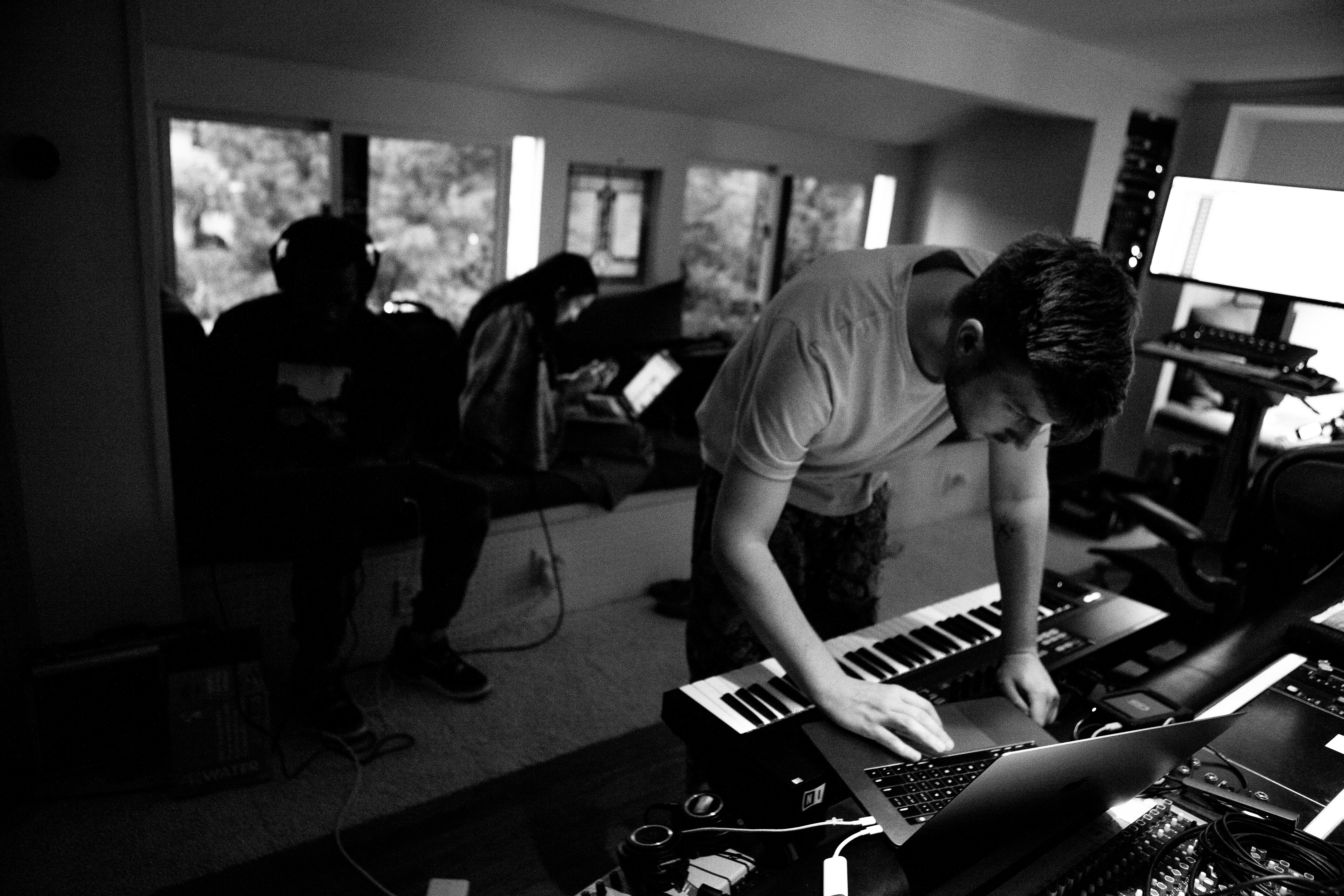
When he’s working on his own material, Lido uses this time to learn more about himself rather than achieving a defined goal. Because of this, both the process and the result are unpredictable. He uses his EPs as “pivot moves.” That is, when he wants to showcase another aspect of his talents or a different style or genre, he’ll release an EP that highlights that.
Spacesuit with J’von, for example, illustrates his abilities in soulful, organic hip hop. Or he might release a series of EPs that follow a trajectory toward a new space. He did this with the IOU EPs to transition himself into the position of vocalist, a role he fully embraced on his upcoming album. Albums, on the other hand, are conceptual for him, holistic and more of a statement.
This exploratory approach has always been the way with Lido, entirely self-taught from the age of two. His parents provided lessons, and, he says, “My music teachers tried to teach me to read music and tried to teach me technique, but I didn’t like being told what to do.
“My ear has always been stronger than my theoretical mind,” he continues. “And my technique is terrible—on all instruments, really bad. But it gives me a certain sound and it gives my production a certain style. I’m sure the way I use compressors and Cubase and the way I tune things and structure songs is not what you’re supposed to do, but that’s what makes it interesting.”
Lido has been working in Cubase from the start and is most comfortable within that DAW’s parameters. He cites its “openness” as one of Cubase’s better qualities, and the inconvenience of portability between it and other DAWs has inadvertently resulted in Lido having more control over the songs. While he likes the usual plug-ins—SoundToys, Valhalla, Altiverb, Universal Audio—he often finds himself returning to Cubase’s native offerings to give him a unique sound in his field.
“I know a lot, but I’m still blindly turning knobs and using my ears,” Lido explains. “We forget about that. We forget to close our eyes. We look at the screen a lot—‘I can see it getting louder so I think it’s getting louder.’ I try to not fall into that trap.”
It’s thought processes like this that put Lido apart from his peers and at the same time give him pop hits. “What’s happening right now is we’re very self-referencing,” he says, speaking about his community of producers and beatmakers. “So much great music is sample-based. So many great songs reference older songs. So many great songwriting techniques are based on older songs, using them as templates. The only templates we’re using right now are those of the past two or three years. It’s becoming a closer and closer loop.”
He points out some of the most successful artists at the current time—Billie Eilish, Brockhampton, Bruno Mars, Childish Gambino—who don’t fall into this loop and don’t sound like anything else.
“What has always kept music interesting is people looking outside of their genre and outside of right now,” he says, “taking from other places and other times, and reinterpreting it. We’re very locked in harmonically with what we have been doing for a while. The main thing I try to do is keep a healthy variation.
“I’ve never heard Rick [Rubin] comment about a snare or a synth sound, or a mix or a compressor. He’ll talk about tempo, flow, length, energy. He’s really good at seeing the big picture instead of being focused on smaller things. His advantage is perspective, because we get lost in details way too much. People imagine you have to watch what legendary producers do on the board. That doesn’t matter. Production is getting something incredible out of an artist.”
